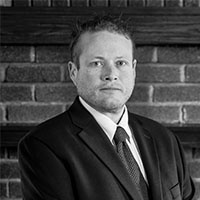 Comstock Criminal Lawyers, Minnesota
Comstock Criminal Lawyers, Minnesota
Not enough matches for Comstock Criminal lawyer.
Below are all Comstock lawyers.
Sponsored Lawyers
1-10 of 17 matches
Accident & Injury, Workers' Compensation, Car Accident, Products Liability, Medical Malpractice
Todd Miller was born in Fargo, North Dakota where he attended school and graduated from Fargo North High School. He is an Eagle Scout. After graduating from high school, Todd went to college at the University of North Dakota and graduated from law school at UND. Todd’s practice will focus on mass tort litigation, including representing people injured by defective and unsafe drugs and defective medical devices. He will also handle personal injury litigation including representation of people hurt in automobile accidents, animal attacks and slip and falls, as well as the general practice of law.
(more)




